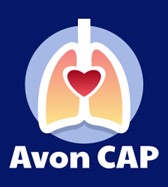
Pneumonia is an inflammation of one or both lungs, usually caused by infection. Pneumonia is very common with 270,000 patients admitted as an emergency to hospital in England every year. Most people recover completely but some have complications. Two of the most significant complications are heart attack or stroke. Around 1 in 13 patients (8%) who are admitted to hospital with pneumonia have a heart attack or stroke within three months. These events are thought to occur because the infection attacks blood vessels and causes clots, reducing the blood reaching the heart or brain. Patients who have a heart attack or stroke take longer to recover from pneumonia and are more likely to die. Aspirin has been used for decades to reduce the chance of having a heart attack or stroke in patients at high risk of either event. It works quickly with limited side effects in the vast majority of patients.
ASPECT is a large randomised controlled trial to test whether aspirin reduces the risk of a heart attack or stroke in patients who are admitted to hospital with pneumonia. The trial needs to recruit 22,600 patients to answer this question. This is a 4-year study with its findings supporting further recommendations for patients with pneumonia.
Adults over 50 years of age admitted to hospital with pneumonia will be invited to take part. Those who agree will be split into two groups. Every person joining the study will have an equal chance of being in either group, so both groups will be made up of the same kinds of people. One group will be asked to take one tablet of low dose aspirin each day for 3 months, after taking a higher dose (2 tablets daily) for the 1st 7 days. The other group will not. In all other respects, both groups will have standard pneumonia treatment.
Participants will be followed up after 3 months, without having to do anything. We will assess their recovery, specifically whether they have a heart attack or stroke, or any serious side effects of aspirin. We will do this by reviewing the 'usual care' health records of participants held by NHS hospitals. Following up participants like this has been shown to be robust, reduces the burden on participants and makes the research much less expensive.
To ensure participants are not getting side effects that would not be picked up in their health records, we will contact 2000 participants recruited early in the trial, this will also be an opportunity to discuss whether they took the medication prescribed. Patient and Public Involvement (PPI) This research question and Plain English Summary has been developed with members of the NBT Infection PPI Group. We will publish our results in medical journals and ensure they are incorporated into treatment guidelines if appropriate.

AvonCAP is a large and comprehensive observational study which enrols approximately 10000 adults hospitalised with acute lower respiratory tract disease (aLRTD) a year. AvonCAP is a collaboration with the UK Health Security Agency (UKHSA), North Bristol NHS Trust and the University Hospitals of Bristol and Weston NHS Trust with the University of Bristol. The study is funded by Pfizer Inc.
AvonCAP aims to evaluate the disease burden of pneumonia and other respiratory infections, working closely with UKHSA to determine the effect of all vaccinations against respiratory disease in patients hospitalised with lung infection. As part of this work, the study is part of the COVID-19 Vaccine Effectiveness Working Group. We hope to understand the impact that respiratory disease has on patients who need hospital care, and continue to develop our collaboration with colleagues in UKHSA to improve outcomes for patients with pneumonia.
For more information about the study please see: <insert link to this website https://www.bristol.ac.uk/translational-health-sciences/research/bcvc/research/avoncap-study/
